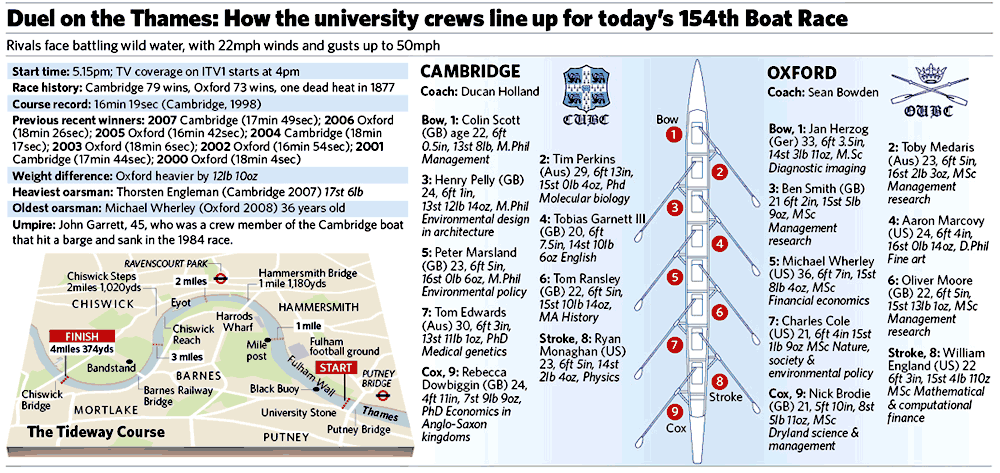Rowing: Light Blues can ride white horses to victory

Your support helps us to tell the story
From reproductive rights to climate change to Big Tech, The Independent is on the ground when the story is developing. Whether it's investigating the financials of Elon Musk's pro-Trump PAC or producing our latest documentary, 'The A Word', which shines a light on the American women fighting for reproductive rights, we know how important it is to parse out the facts from the messaging.
At such a critical moment in US history, we need reporters on the ground. Your donation allows us to keep sending journalists to speak to both sides of the story.
The Independent is trusted by Americans across the entire political spectrum. And unlike many other quality news outlets, we choose not to lock Americans out of our reporting and analysis with paywalls. We believe quality journalism should be available to everyone, paid for by those who can afford it.
Your support makes all the difference.The Boat Race once again looks like being a contest of power versus grace. Oxford, a shade under the weight of the heaviest crew on record, bat along through the waves and chuck a lot of water about. Cambridge ride the surface – the substitution of Ryan Monaghan for Shane O'Mara in the stroke seat on Wednesday night has not ruptured their rhythm. This could favour the Dark Blues in calm water and the Light Blues, who are not significantly lighter, in rough conditions over the championship course of four-and-a-quarter miles. They performed a brilliant start in waves yesterday.
The chances are that today's race will be rough. Yesterday the crews were tested by a 15mph. southerly wind which white-horsed the water from the milepost to Hammersmith. They coped well, but this was a case of maintaining rhythm while testing the pumps fitted to the boat to prevent sinking.
Today's forecast is for a 22mph wind veering round to south, south west, which promises bouncy conditions at the start and little shelter from the Fulham Wall for the crew on the Middlesex station. This indicates that the winner of the toss will choose the Surrey station because, in the event of failing to lead after the mile post, the sheltered station will be theirs round the mile-long bend of Chiswick and Corney reaches.
A Surrey cox's best bet at the start would be to hug the moored boats along the Fulham reach instead of bothering about pushing the Middlesex crew off the tide in the middle. Whip along the boats for the first half-mile and you have the best of the tide in which to approach the milepost.
Such conditions will put added pressure on Rebecca Dowbiggin and Nick Brodie, the coxes, and the umpire, John Garrett. Garrett's job is to warn against infringements, not to steer the crews. There is a new potential difficulty this year because some of the 11 navigation buoys now in place along the Putney to Mortlake course are at crucial points for crews seeking advantage or shelter from rough water. They are an added element to the business of fighting for the best of the tide. If there is no understanding between coxes and umpire, Garrett will be a lonely figure. If semaphore and warnings fail him, his only weapon is disqualification for a foul.
The crews are star-deprived, with the exception of Oxford's Jan Herzog and Mike Wherley, and Blue-deprived with the exception of the coxes and Cambridge's Tom Edwards. Fourteen of the 18 rowers are graduate students and half are British. Half of the Ivy League is represented. None of this is unusual. The 154th race promises to be a good contest, so long as it is not messed up by the weather.
Join our commenting forum
Join thought-provoking conversations, follow other Independent readers and see their replies
Comments